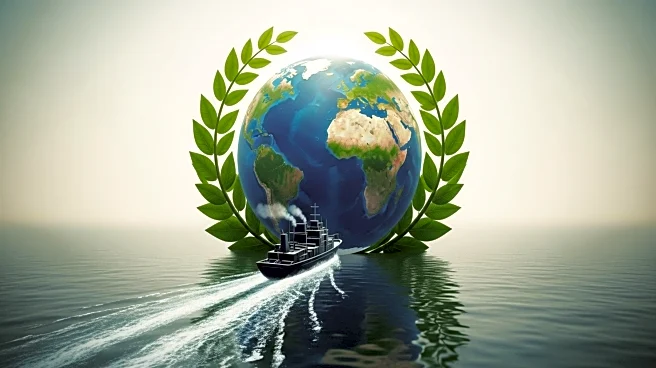What's Happening?
A coalition of leading shipping companies has called for amendments to a United Nations agreement aimed at reducing marine fuel emissions. The proposed Net-Zero Framework, set for adoption by the International Maritime Organization (IMO) next month, has faced opposition from the U.S. and concerns from industry leaders. The shipping companies argue that the current framework does not effectively support decarbonization and imposes excessive financial burdens. They advocate for realistic trajectories and amendments to ensure a level playing field. The U.S. has warned countries against adopting the deal, citing potential tariffs and visa restrictions.
Why It's Important?
The shipping industry is responsible for nearly 3% of global carbon emissions, making the proposed UN agreement crucial for accelerating decarbonization efforts. The industry's call for revisions highlights the challenges in balancing environmental goals with economic impacts. The opposition from the U.S. underscores geopolitical tensions and the complexities of international regulatory frameworks. The outcome of this agreement could significantly influence global shipping practices and environmental policies, affecting trade dynamics and economic stakeholders worldwide.
What's Next?
The IMO is scheduled to consider the adoption of the Net-Zero Framework next month, with ongoing discussions about potential amendments. The shipping industry and member countries will continue to negotiate terms to address concerns and ensure the framework's effectiveness. The outcome of these negotiations will determine the future regulatory landscape for marine fuel emissions and its impact on global shipping operations.
Beyond the Headlines
The debate over the UN agreement reflects broader issues of environmental justice and economic equity. The shipping industry's concerns about financial burdens highlight the need for policies that balance environmental objectives with economic realities. The discussions also raise questions about the role of international organizations in setting global standards and the influence of major economic powers in shaping these policies.









